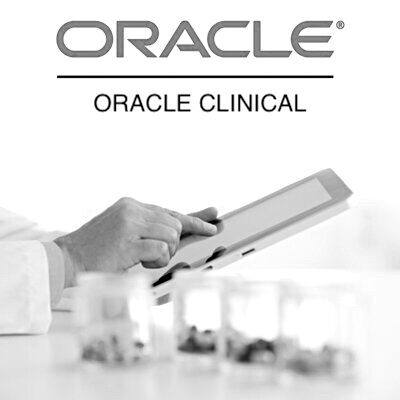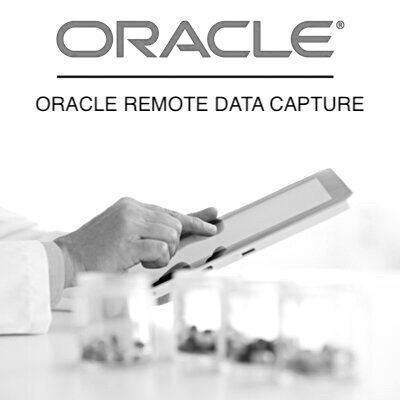Emerging Technology Trends in Clinical Data Management
Table of Contents
- Introduction
- Big Data and Analytics
- Artificial Intelligence (AI) and Machine Learning
- Blockchain Technology
- Internet of Things (IoT) Devices
- Data Privacy and Security
- Cloud Computing
- Natural Language Processing (NLP)
- Conclusion
- Oracle Clinical Fundamentals
- Oracle Clinical – Live Online
- Oracle Remote Data Capture
- Diploma in Clinical Data Management
Introduction
Clinical data management plays a pivotal role in the healthcare industry by ensuring the accuracy, integrity, and security of patient data. As the healthcare landscape continues to evolve, driven by technological advancements and the ever-increasing volume of data, clinical data management must adapt to meet these new challenges. In this blog, we will explore some of the emerging technology trends that are reshaping clinical data management and revolutionizing patient care.
Big Data and Analytics
One of the most significant trends in clinical data management is the utilization of big data and analytics. With the advent of electronic health records (EHRs), wearable devices, and other digital health tools, healthcare organizations now have access to vast amounts of patient data. Big data analytics allows them to extract meaningful insights from this data, enabling more informed decision-making.
By analyzing large datasets, healthcare providers can identify patterns, trends, and correlations that were previously impossible to detect. This can aid in disease prevention, early diagnosis, and personalized treatment plans. Moreover, predictive analytics can help forecast disease outbreaks and allocate resources more efficiently.
Artificial Intelligence (AI) and Machine Learning
AI and machine learning are transforming clinical data management in various ways. These technologies can process and analyze data at speeds and scales that were once unimaginable. In the context of clinical data, AI and machine learning can assist in data quality control, predictive modeling, and even automating certain tasks, such as medical coding and transcription.
For instance, AI-powered algorithms can sift through medical records to identify discrepancies or missing information, ensuring the accuracy and completeness of patient data. Machine learning models can predict patient outcomes based on historical data, helping clinicians make better treatment decisions. AI chatbots are also being used for patient engagement and assistance, making healthcare more accessible and convenient.
Blockchain Technology
Blockchain technology has gained traction in clinical data management due to its potential to enhance data security and interoperability. Blockchain provides a tamper-resistant and transparent ledger for storing and sharing patient records. Each transaction on the blockchain is recorded in a way that ensures data integrity, making it nearly impossible for unauthorized parties to alter or access patient information.
Moreover, blockchain can facilitate data sharing among different healthcare providers while maintaining patient privacy and consent. Patients can have more control over their data and grant access to specific healthcare providers as needed, improving overall care coordination.
Internet of Things (IoT) Devices
The Internet of Things (IoT) has opened up new avenues for collecting real-time patient data. IoT devices such as wearables, smart sensors, and remote monitoring tools can continuously gather data on vital signs, medication adherence, and lifestyle factors. This data can be transmitted securely to healthcare providers and integrated into EHR systems.
For example, a diabetic patient can wear a continuous glucose monitor that sends data to their healthcare provider’s system. This real-time information can help clinicians adjust treatment plans promptly, reducing the risk of complications. The use of IoT devices in clinical data management enhances patient engagement and enables proactive healthcare interventions.
Data Privacy and Security
As the volume of healthcare data grows, so do concerns about data privacy and security. Patients rightly expect their sensitive medical information to be safeguarded from unauthorized access and breaches. Emerging technologies are addressing these concerns.
Advanced encryption techniques, biometric authentication, and decentralized identity systems are being implemented to enhance data security. Moreover, compliance with regulations like the Health Insurance Portability and Accountability Act (HIPAA) and the General Data Protection Regulation (GDPR) is driving healthcare organizations to invest in robust data protection strategies.
Cloud Computing
Cloud computing has become an integral part of clinical data management. Cloud-based solutions offer scalability, flexibility, and cost-efficiency, making it easier for healthcare organizations to store, manage, and access their data. Cloud platforms provide the infrastructure for advanced analytics, AI applications, and collaboration among healthcare professionals.
Additionally, cloud solutions can facilitate data sharing and collaboration among healthcare institutions, enabling the seamless exchange of patient information while adhering to privacy regulations.
Natural Language Processing (NLP)
Natural language processing (NLP) technology is being used to extract valuable information from unstructured clinical data such as physician notes, radiology reports, and patient narratives. NLP algorithms can interpret and categorize this data, making it more accessible for analysis and decision support.
For instance, NLP can help identify adverse events, extract relevant data for research purposes, and assist in clinical coding. This technology improves the efficiency of clinical data management by automating tasks that were previously time-consuming and error-prone.
Conclusion
The field of clinical data management is undergoing a significant transformation, driven by emerging technologies that are reshaping the way healthcare data is collected, processed, and utilized. Big data analytics, AI, blockchain, IoT devices, enhanced data security measures, cloud computing, and NLP are all contributing to a more efficient and patient-centric healthcare system.
These trends not only improve the quality of patient care but also hold the potential to reduce healthcare costs, enhance clinical research, and accelerate medical breakthroughs. As these technologies continue to mature and integrate into the healthcare ecosystem, we can expect further advancements in clinical data management that will benefit both patients and healthcare providers. Embracing these trends will be crucial for healthcare organizations aiming to stay at the forefront of patient care and medical innovation in the coming years.
You may be interested in…




